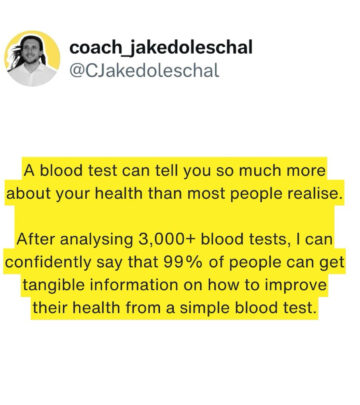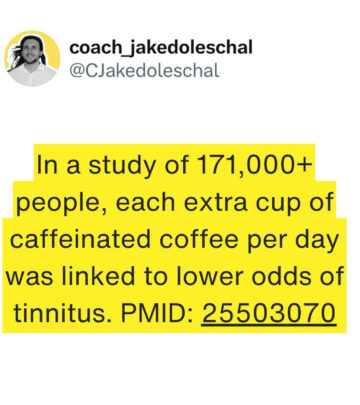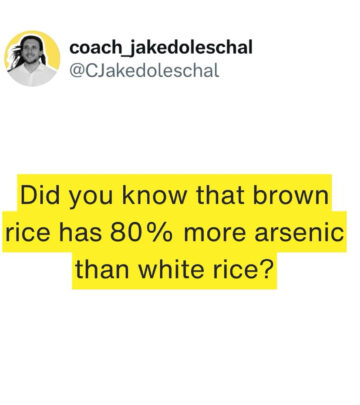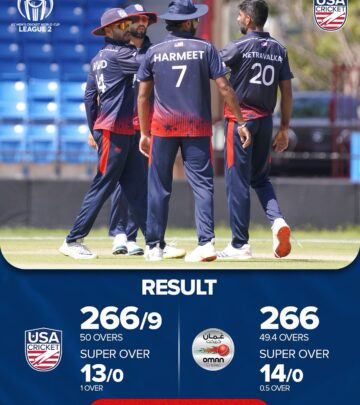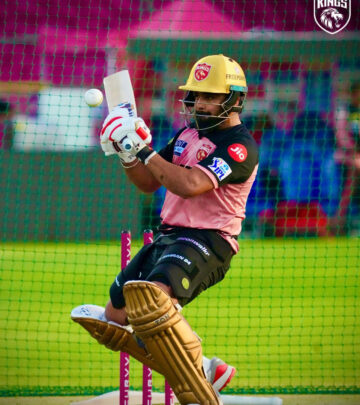Inflammation Is Essential For Muscle Growth
Holistic Coach Jake Doleschal explains how blunting inflammation can hinder muscle repair!
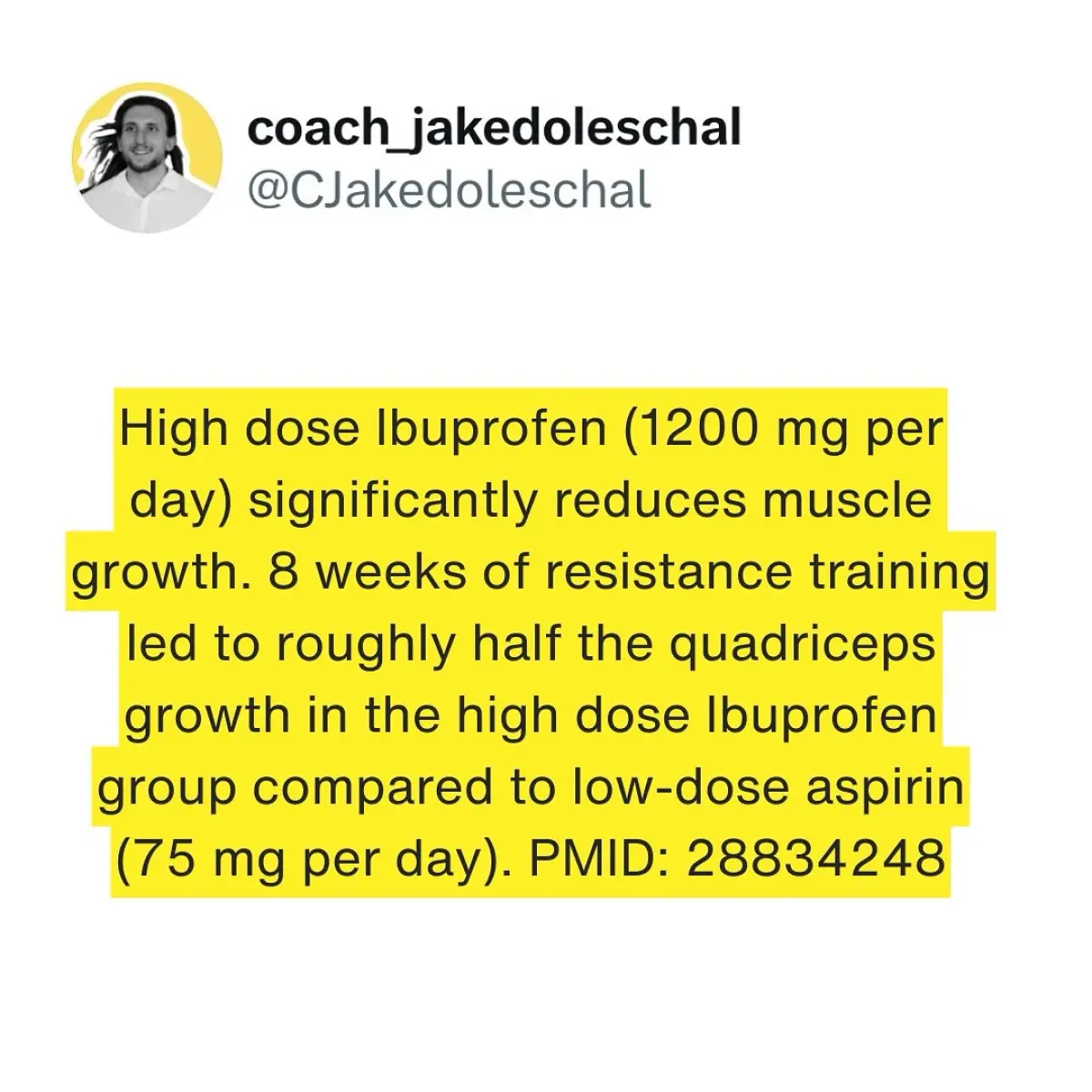
Image: Instagram
Holistic coach Jake Doleschal has stirred conversation on the role of inflammation in muscle repair and growth through his latest Instagram post. In the age of performance optimization and health consciousness, Jake’s insights serve as a wake-up call for athletes and fitness enthusiasts alike. His recent caption emphasizes that while inflammation can be associated with pain and injury, it is in fact a crucial part of the body’s natural process to repair and build muscle tissue.
Inflammation And Muscle Growth
Not all inflammation is bad. Inflammation is actually a necessary step in muscle growth and repair. By significantly inhibiting inflammation with high dose NSAID medication, muscle adaptations to resistance training may be significantly impaired. These straightforward but impactful words from Coach Jake remind us that the body’s inflammatory response is more than just a signal of injury; it is the body’s call for recovery and adaptation following strenuous exercise.
In his detailed yet accessible post, Jake explains that the common use of non-steroidal anti-inflammatory drugs (NSAIDs) among athletes to manage post-workout soreness could inadvertently block the natural processes that lead to muscle growth. This observation is important for anyone relying on high-dose pain relievers without considering the long-term implications. The post, which was accompanied by a candid image of Jake, underscores a broader conversation surrounding the balance between managing discomfort and supporting overall body adaptation.
Understanding Body Signals
Jake’s perspective is rooted in a holistic approach to health. He stresses that while immediate pain relief might be tempting, inflammation is an essential signal for the body to initiate repair mechanisms. For trainers and athletes, this message is critical: when the body signals inflammation, it is not always the enemy. Rather, it is part of a natural adaptive process that helps muscles strengthen over time.
Many fitness enthusiasts may not realize that inflammation plays an integral role in muscle remodeling. When we engage in resistance training, our muscle fibers sustain minor damage, triggering an inflammatory response. This inflammation attracts healing cells to the site of injury, facilitating repair and growth. According to Coach Jake, intervening too aggressively in this process – for example, with high doses of NSAIDs – may actually stall the muscle’s ability to adapt, resulting in less than optimal gains from training sessions.
The Balance Between Relief And Recovery
Jake’s advice is a reminder that modern training regimes should not completely eliminate the body’s natural responses. While inflammation can be uncomfortable, it is not synonymous with harm; it’s an indicator that the body is actively working to rebuild and fortify itself. His approach recommends that athletes and those engaged in regular resistance training consider the timing and dosage of their anti-inflammatory medication. Instead of reflexively reaching for NSAIDs at the first sign of soreness, a more balanced strategy might involve using these medications in moderation and exploring alternative recovery methods. These might include proper nutrition, hydration, and rest – all of which support the healing process without dampening the beneficial effects of inflammation.
Coach Jake’s holistic approach is not entirely new in the wellness community. He has, in previous posts, delved into topics ranging from the importance of high-quality water filtration for health to the benefits of magnesium supplementation in mitigating exercise-induced muscle damage. In one earlier Instagram post, he highlighted the need for simple blood tests to identify nutritional deficiencies and inflammation markers—an approach that aligns seamlessly with his current message about inflammation and resistance training. By recommending such targeted diagnostics, Jake empowers his followers to make informed decisions regarding their health interventions.
Integrating Science With Practice
The dialogue surrounding inflammation and recovery is gaining momentum as more athletes seek scientifically backed advice to optimize their training outcomes. Jake’s insights resonate particularly well with individuals striving to balance intense workouts with adequate recovery. As more research comes to light, it’s increasingly clear that the body’s response to muscle damage is a sophisticated process, reliant on signaling pathways that should not be prematurely interrupted.
In discussing these issues on his Instagram account (@coach_jakedoleschal), Jake not only informs but also invites his audience to re-evaluate common practices in sports medicine and exercise recovery. His straightforward discussion about the potential pitfalls of excessive NSAID use challenges long-held assumptions about inflammation as a purely negative process. Instead, it positions inflammation as an indispensable ally in the pursuit of fitness gains and overall muscular health.
This balanced perspective encourages readers to consider other natural recovery processes and to weigh the benefits of allowing the body to heal on its own. By urging caution in the use of high-dose anti-inflammatory medications and advocating for a more measured approach, Coach Jake offers practical advice that can ultimately lead to more efficient training outcomes and sustained muscle growth.
The conversation that started with his succinct Instagram caption has opened up broader discussions about how best to harness the body’s innate healing mechanisms. For anyone passionate about long-term athletic performance, understanding the role of inflammation is key to designing a training regimen that respects the natural processes of the body while still addressing pain and discomfort when necessary.
Read full bio of Srijita De





